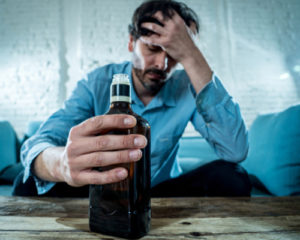Alcohol is a common source of substance use disorders in the United States. New England has a particular problem with alcohol and addiction in general. In 2016, The Washington Post reported that New England was home to some of the heaviest drinkers in the country.
Alcohol is a legal and culturally accepted recreational substance, and that means most people have tried it at least once. In fact, more than 86 percent of adults in the U.S. reported drinking alcohol at one point in their lives, according to the 2018 National Survey on Drug Use and Health.
Alcoholism in New England can represent a serious public health issue. And when you include the recent opioid epidemic that has had a heavy impact on the area, alcohol abuse can become even more deadly. Learn more about alcohol rehab in New England.
New England Alcohol Rehab Statistics
The Washington Post reported that New Hampshire had some of the highest drinking rates in the country. Around 64 percent of residents over the age of 12 reported drinking every month. Vermont, Maine, and Connecticut were all in percentages above 60 percent. Each of New England’s states has excessive drinking rates that involve around 18 and 19 percent of adults.
Excessive drinking, or binge drinking, can increase your risk of developing an addiction, experiencing acute and chronic health issues, or getting into a fatal accident. Binge drinking involves drinking four to five alcoholic beverages in one sitting, or in a two hour period.
Alcoholism also leads to immediate public health effects like alcohol poisoning and auto accidents. Each of the states also reported that more than 27 percent of car accident deaths involved alcohol, with Maine reporting nearly 40 percent, the fourth-highest rate in the country.
Drugs Mixed With Alcohol in New England

Alcohol is commonly mixed with other substances through recreational use. In some cases, alcohol may be accidentally mixed with prescription drugs. For that reason, it’s important to be aware of the effects of alcohol on any medication you’re taking. In other cases, alcohol may be present where other medications are being used recreationally.
Some prescription and illicit drugs that can be abused may be extremely dangerous to mix with alcohol. Stimulants can mask some of the effects of alcohol and vise versa. This can encourage people to take heavy and more dangerous doses. Alcohol may also be dangerous when mixed with opioids and other depressants like benzodiazepines. Combining depressants can quickly lead to respiratory depression and a fatal overdose.
Quick Treatment Facts
Alcoholism is officially diagnosed as an alcohol use disorder in the DSM-5, and it’s a form of addiction. Alcohol is one of the most common types of substance use disorders, and it’s a typical primary drug of choice among people that seek addiction treatment. Though addiction is a chronic disease, it’s one that can be treated with the right therapies.
Addiction treatment is a multifaceted process that addresses multiple disciplines, including medical, psychological, and social treatment. When you begin an alcohol detox program, you’ll meet with medical and clinical treatment professionals who will help you create a treatment plan that’s tailored to you.
Getting Treatment at Serenity at Summit in Haverhill, MA
Our location in Haverhill, MA is our only facility that offers the complete continuum of treatment. Clients can begin with our medically supervised detox service before transitioning to our residential treatment stage. Afterward, you have the option of taking advantage of our Haverhill outpatient programs, which allow you to continue treatment while living at home.
What Is Addiction? Retrieved from: https://www.psychiatry.org/patients-families/addiction/what-is-addiction
These are America’s drunkest states. Buckingham, C. Retrieved from: https://www.usatoday.com/story/news/2018/03/08/these-americas-drunkest-states/406342002/
Treatment and Recovery. Retrieved from: https://www.drugabuse.gov/publications/drugs-brains-behavior-science-addiction/treatment-recovery
Alcohol Facts and Statistics. Retrieved from: https://www.niaaa.nih.gov/publications/brochures-and-fact-sheets/alcohol-facts-and-statistics
Where the heaviest-drinking Americans live. Ingraham, C. Retrieved from: https://www.washingtonpost.com/news/wonk/wp/2016/12/24/where-the-heaviest-drinking-americans-live/

